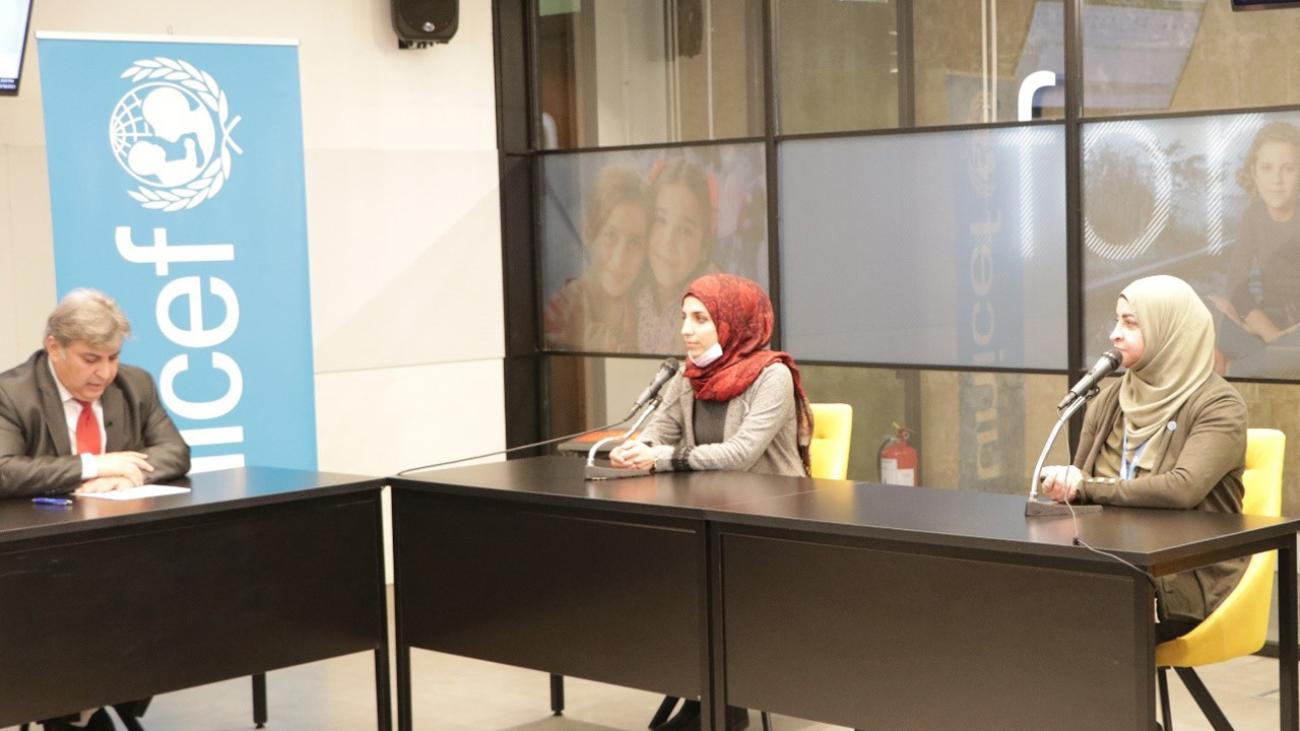“Agriculture is currently the most important sector in the economy of Lebanon. You eat what you plant," said Mohammad Nasrallah, a graduate from the Technical Agriculture School in Khyam, South Lebanon. "I was lucky to specialize in Beekeeping and benefit from what I have learned from the technical school”.
Mohamad, along with other students and graduates from the technical schools, took part in an online Facebook session on the 18th of December 2020, in the presence of experts from FAO, UNICEF, the Ministry of Agriculture (MoA), the Embassy of Netherlands in Lebanon, and the private sector.
The session, moderated by Oussama Ghoneim, an expert in technical education, was hosted by UNICEF Lebanon in collaboration with FAO and the Ministry of Agriculture (MoA) and funded by the Kingdom of Netherlands. It was attended online by 88 people who shared questions on the enrolment process.
As part of FAO’s project “Upgrading the Technical Agriculture Education System in Lebanon”, the online session aimed at shedding light on the importance of agricultural schools, encouraging more youth involvement in the agricultural sector and enrolment in the Technical Agriculture Schools (TAS).
During the virtual session, Abir Abulkhoudoud from FAO, Josiane Makhoul from UNICEF, and Fatima Halbawi from MoA introduced the project to participants and the activities undertaken in support of the technical agriculture education in Lebanon.
The project is working to rehabilitate and upgrade the seven agricultural technical schools in Lebanon and to modernize their curricula. It offers young Lebanese and displaced Syrians the possibility to enroll in the three-year Agricultural Technical Baccalaureate (BTA) and/or in short-term vocational training courses.
“I wish I knew earlier about the technical agricultural school,” said Nour Malaeb, a student at Baakline’s technical agricultural school. Thanks to the advice of her teachers and their guidance, Nour started the Rizka project aiming at providing agricultural services to people who cannot take care of their land.
Amani Tarshishi is also a graduate of the agricultural technical school in Nasriyit Rizk. She benefitted a lot from the courses and learned how to combine theory with practice. She is now working in Mouneh production and owns a small cows’ farm. “I used to work in the hotel management sector, but I shifted to agriculture as it is an important sector that offers many job opportunities. I encourage the youth in general, and young women in particular, to enroll in these schools,” she said.
For Hussein Najem, a graduate from the Nabatieh agricultural technical school, agriculture is becoming more appealing to new generations as they are finding new ways of working in agriculture that harness digital and technological innovations.
Nadine Khoury, Head of Qoot Cluster also emphasized the important innovations in agriculture and the role that youth can play in this realm. “Youth are the future of Lebanon. They are the ones who will revolutionize the agriculture sector despite all challenges facing Lebanon,” she said.
“The agricultural sector is essential in Lebanon. We noticed the efforts that the Lebanese youth are making to have better opportunities in agriculture, which encouraged the embassy of Netherlands to support this sector and contribute to its development” said Vida Hamd, from the Embassy of Netherlands in Lebanon. “We are keen on continuing this support to the student’s career path by enhancing training and work opportunities.”







